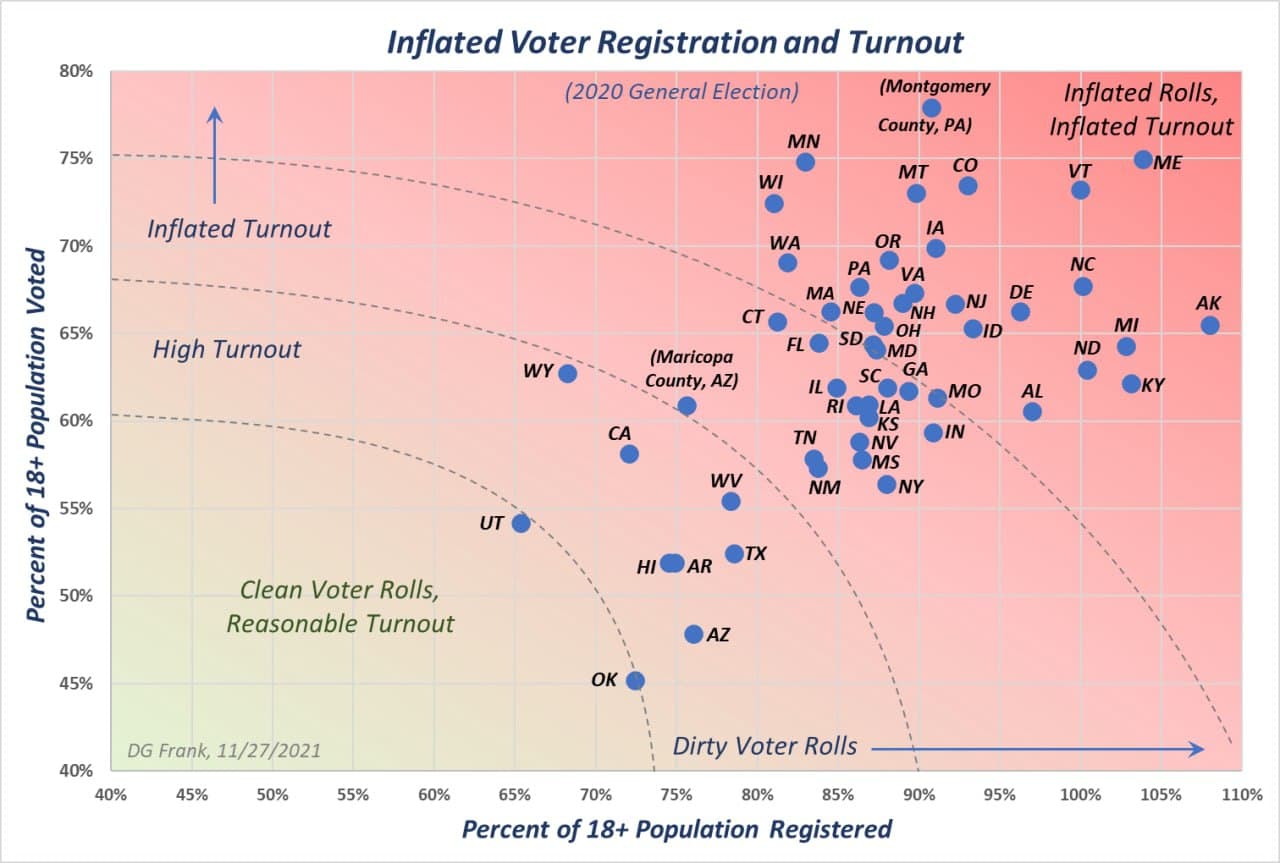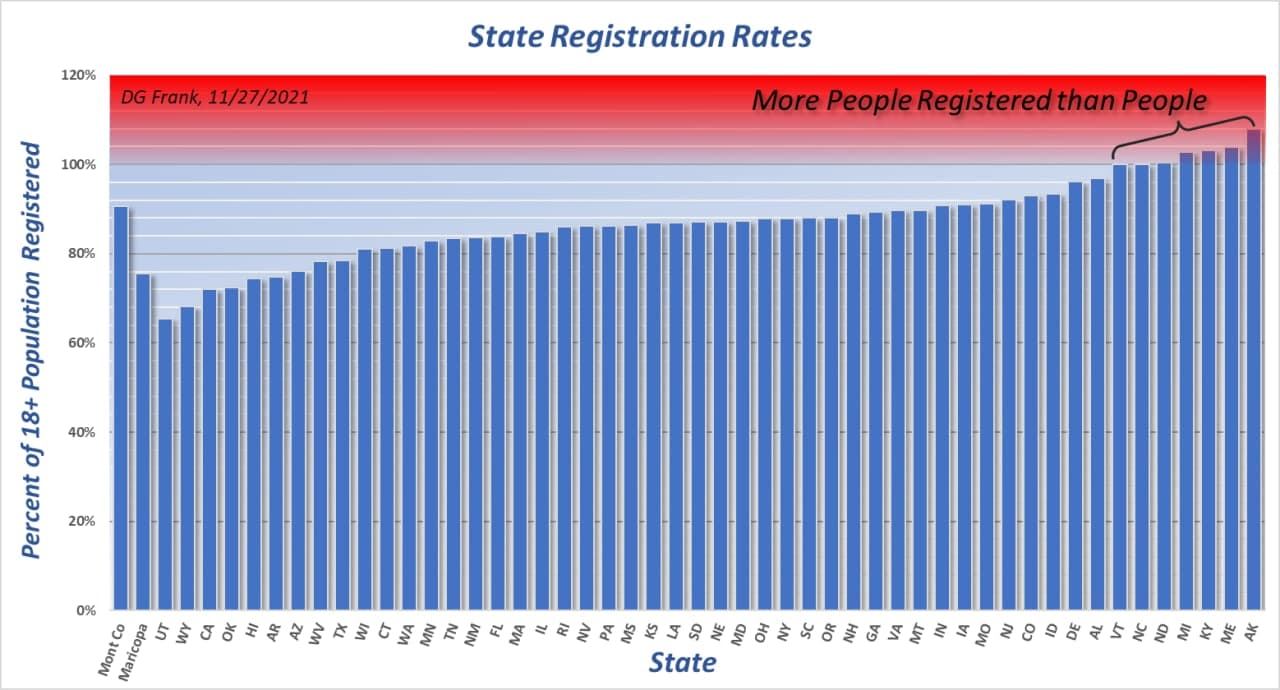See also the main article on Kentucky, for documented election integrity issues and further reports.
For an overview of Dr. Frank’s approach and findings, see the main page on Dr. Frank’s Election Analysis. This page contains the portions of Dr. Doug Frank’s analyses that are specific to Kentucky.
Using 2010 US Census data and updated 2019 American Community Survey data from the Census Bureau, Dr. Frank was able to predict not only the voter turnout by age, but voter registration by age. When Frank’s prediction is compared to the actual voter turnout and voter registration by age, it correlates to an unusually high level of accuracy.
Summary of Findings
Dr. Doug Frank studied the data from Kentucky’s voter registration rolls and reports numerous concerning issues:
-
Kentucky registration rolls are irrationally inflated — there are more people registered to vote than there are eligible citizens
-
Kentucky registration rolls are centrally manipulated
-
Large numbers of voters are missing from the registration rolls — officials cannot tell you exactly who voted
-
In four counties, there were more votes for president than there were ballots
-
The ballot demographics in the rolls are unnaturally predictable (see below), even a year after the election
The following video contains Dr. Frank’s presentation of his findings in Kentucky. It’s the presentation slides only, without sound.
Bloated Voter Rolls
Dr. Doug Frank performed voter registration analysis and found that Kentucky had more people registered to vote than the total population over age 18.
Source: Telegram Post, Nov 28, 2021
While this could be a symptom of poor clean-up of voter rolls — where voters that have died or moved interstate are left on the rolls for extended periods of time — it creates significant opportunity for fraudulent ballots to be submitted under the names of expired voters, making them appear legitimate. This was made even easier with the prevalence of mail-in ballots and widespread abandonment of voter ID rules which occurred in many states during the 2020 election.
The door-to-door canvassing across numerous states is proving that “phantom votes” were indeed counted for certain voters who were registered but did not themselves submit a ballot.
Research is also underway to explore disconcerting cases in some states whereby voter rolls appear to have been deliberately padded with false, duplicated, or expired records, possibly for the purpose of providing cover for fraudulent ballots. This is evidenced by graphing the changes to voter rolls over time and observing patterns which appear algorithmically-generated rather than organic, and then drilling down to identify specific anomalous records. We hope to release more findings on these anomalies in the coming weeks.
Changes in Kentucky Voter Registrations Over Time
This chart shows the Kentucky voter registration numbers over time for all 120 counties. It’s represented as the total number of registrants on the rolls for each county as a percent of its maximum value over this time period.


In 2019, Judicial Watch sued them for having too many voters in their voter rolls, so KY cleaned up the rolls. Then, there was another lawsuit, and they added them back. Just in time for the 2019 election.
Dr. Frank asks: If they knew they needed to remove them, why would they deliberately dirty up the rolls again?
Then, notice the surge in registration rolls leading up to the November 2020 election, and the cleanup that follows.
Suspicious.
Source: Telegram Post. Data is publicly available from the elect.ky.gov website.
Registration Percentages by County
Source: Telegram Post, Dec 15, 2021
Vote Count Anomalies
The following charts show further anomalies identified by Dr. Frank:
Source: Telegram Post, Dec 15, 2021
Source: Telegram Post, Dec 15, 2021. Only 54 counties are represented here because they were the only ones Dr. Frank had access to.
Voter Registration & Turnout Compared to Other States

Source: Telegram Post, Nov 28, 2021



